Regulation
UN Calls for Global AI Governance As Meta & OpenAI Face Challenges

AI News: The United Nations has issued seven recommendations for reducing the risks of artificial intelligence (AI) based on input from a UN advisory body. The final report of the council’s advisory body focuses on the importance of developing a unified approach to the regulation of AI and will be considered at a UN meeting scheduled for later this month.
AI News: UN Calls for Global AI Governance
The council of 39 experts noted that large multinational corporations have been able to dominate the development of AI technologies given the increasing rate of growth, which is a major concern. The panel stressed that there is an ‘unavoidable’ need for the governance of artificial intelligence on a global scale, since the creation and use of artificial intelligence cannot be solely attributed to market mechanisms.
According to the UN report, to counter the lack of information between the AI labs and the rest of the world, it is suggested that a panel should be formed to disseminate accurate and independent information on artificial intelligence.
The recommendations include the creation of a global AI fund to address the capacity and collaboration differences especially in the developing countries that cannot afford to use AI. The report also provides recommendations on how to establish a global artificial intelligencedata framework for the purpose of increasing transparency and accountability, and the establishment of a policy dialogue that would be aimed at addressing all the matters concerning the governance of artificial intelligence.
While the report did not propose a new International organization for the regulation, it pointed out that if risks associated with the new technology were to escalate then there may be the need for a more powerful global body with the mandate to enforce the regulation of the technology. The United Nation’s approach is different from that of some countries, including the United States, which has recently approved of ‘a blueprint for action’ to manage AI in military use – something China has not endorsed.
Calls for Regulatory Harmonization in Europe
Concurrent with the AI news, leaders, including Yann LeCun, Meta’s Chief AI Scientist and many CEOs and academics from Europe, have demanded to know how the regulation will work in Europe. In an open letter, they stated that the EU has the potential to reap the economic benefits of AI if the rules do not hinder the freedom of research and ethical implementation of AI.
Meta’s upcoming multimodal artificial intelligence model, Llama, will not be released in the EU due to regulatory restrictions, which shows the conflict between innovation and regulation.
“Europe needs regulatory certainty on AI”
An open letter signed by Mark Zuckerberg, me, and a number of European CEOs and academics.The EU is well positioned to contribute to progress in AI and profit from its positive economic impact *if* regulations do not impair open…
— Yann LeCun (@ylecun) September 19, 2024
The open letter argues that excessively stringent rules can hinder the EU’s ability to advance in the field, and calls on the policymakers to implement the measures that will allow for the development of a robust artificial intelligence industry while addressing the risks. The letter emphasizes the need for coherent laws that can foster the advancement of AI while not hindering its growth like the warning on Apple iPhone OS as reported by CoinGape.
OpenAI Restructures Safety Oversight Amid Criticism
In addition, there are concerns about how OpenAI has positioned itself where the principles of safety and regulation of AI are concerned. As a result of the criticism from the US politicians and the former employees, the CEO of the company, Sam Altman, stepped down from the company’s Safety and Security Committee.
This committee was formed in the first place to monitor the safety of the artificial intelligence technology and has now been reshaped into an independent authority that can hold back on new model releases until safety risks are addressed.
The new oversight group comprises individuals like Nicole Seligman, former US Army General Paul Nakasone, and Quora CEO Adam D’Angelo, whose role is to ensure that the safety measures put in place by OpenAI are in line with the organization’s objectives. This United Nations AI news comes at the heels of allegations of internal strife, with former researchers claiming that OpenAI is more focused on profit-making than actual artificial intelligence governance.
Disclaimer: The presented content may include the personal opinion of the author and is subject to market condition. Do your market research before investing in cryptocurrencies. The author or the publication does not hold any responsibility for your personal financial loss.
Regulation
Kraken Obtains Restricted Dealer Registration in Canada

Cryptocurrency exchange Kraken has obtained a Restricted Dealer registration in Canada. The registration comes after completing a pre-registration undertaking (PRU) process with Canadian authorities.
The exchange has also announced the appointment of Cynthia Del Pozo as its new General Manager for North America. Del Pozo will oversee Kraken’s growth initiatives in Canada.
Kraken Completes PRU Process In Canada
Kraken’s Restricted Dealer registration marks the completion of a thorough pre-registration undertaking (PRU) process with Canadian regulators. The registration places Kraken under the supervision of the Ontario Securities Commission (OSC). This oversight ensures users have access to secure crypto products within a properly regulated local ecosystem.
According to the Canadian Securities Administrators (CSA), the Restricted Dealer registration is one of eight firm registration types in Canada. This particular classification is used for firms that “do not quite fit under any other category.” It also comes with specific requirements and conditions set by securities regulators.
Kraken’s regulatory achievement comes during a period of change in the Canadian crypto sector. Just months earlier, competitor Gemini exchange announced its departure from the Canadian exchange market by the end of 2024. This was a move that surprised many and raised questions about cryptocurrency regulation clarity in the country.
Kraken Introduces New Canadian GM
Del Pozo has joined Kraken to lead its Canadian operations as the new General Manager for North America. She has nearly 15 years of experience in corporate development, operations, and fintech consulting. Del Pozo will help to guide Kraken’s expansion across Canada during this important phase of crypto’s development in the region.
“Canada is at a turning point for crypto adoption, with a growing number of investors and institutions recognizing digital assets as a vital part of the financial future. I’m thrilled to join Kraken’s mission at this critical moment, and to lead our expansion efforts, ensuring we continue to serve our clients long-term with innovative and compliant products,” said Del Pozo.
In her role, Del Pozo will focus on strengthening Kraken’s regulatory relationships and also scaling the company’s presence throughout North America.
Del Pozo also commented on the registration achievement: “This Restricted Dealer registration is testament to the high bar Kraken has always set for consumer protection, client service, and robust security. We’re excited to continue expanding our world-class investment platform and to deliver innovative products that provide real-world utility to Canadians.”
The Exchange’s Continued Growth In Canada
Over the past two years, the cryptocurrency exchange has shown steady expansion in Canada while working through the PRU process with regulators. During this period, the exchange has doubled its team size and monthly active users.
According to the official blog post figures, the firm now has more than $2 billion CAD in total client assets under custody. Kraken has also increased support for some of the most popular cryptocurrencies. It provides several CAD spot trading pairs that enable Canadians to trade crypto without paying expensive foreign exchange fees.
According to Innovative Research Group’s 2024 Investor Survey, 30% of Canadian investors currently own or have owned cryptocurrencies. Likewise, a KPMG Canada survey discovered that 30% of Canadian institutional investors now have exposure to cryptocurrencies, which means widespread adoption across investor types.
Disclaimer: The presented content may include the personal opinion of the author and is subject to market condition. Do your market research before investing in cryptocurrencies. The author or the publication does not hold any responsibility for your personal financial loss.
Regulation
USDC Issuer Circle Set To File IPO In April, Here’s All

USDC issuer Circle is reportedly set to file its initial public offering (IPO) in April as part of the firm’s plans to finally go public. The stablecoin issuer is allegedly already working with top financial institutions to achieve this move.
Circle To File IPO In Late April
According to a Fortune report, Circle is looking to file its IPO in late April, although the listing period remains uncertain. The report noted that when a company files to go public, its shares usually begin trading four weeks later, indicating that the listing could occur in May. However, there is also a scenario where the IPO process could drag on for months.
The stablecoin issuer is reportedly working with investment banks JPMorgan Chase and Citi to achieve its long-anticipated IPO. The firm had previously tried to go public in 2021 under a SPAC arrangement with a shell company.
The US SEC failed to sign off on this arrangement back then, and the company eventually scrapped these IPO plans by the end of 2022 when the crypto exchange FTX collapsed and the broader crypto market experienced a downturn.
Revelation about Circle’s IPO plans comes just days after the stablecoin issuer partnered with NYSE’s parent company to explore USDC’s use in traditional finance (TradFi). Meanwhile, the USDC stablecoin recently launched in Japan following approval from the country’s regulator. Notably, USDC is the first and only global dollar stablecoin approved under Japan’s stablecoin framework.
An Easier Path Now For The Stablecoin Issuer
Circle will likely face less resistance for its IPO plans under the current SEC administration. Under acting Chair Mark Uyeda, the Commission has shown its willingness to work hand in hand with crypto firms, which was missing under Gary Gensler’s administration.
US SEC Chair nominee Paul Atkins has also shown his willingness to change the approach that Gensler’s administration adopted towards crypto firms. During his nomination hearing, the SEC Chair nominee promised to prioritize providing regulatory clarity for the industry.
Circle’s IPO listing would be the biggest since the top crypto exchange Coinbase went public in 2021. Interestingly, Coinbase owns an equity stake in the crypto firm.
The firm’s USDC is currently the second-largest stablecoin by market cap, only behind Tether’s USDT. The stablecoin industry is heating up as more financial institutions look to develop their own stablecoin.
Donald Trump’s World Liberty Financial recently revealed plans to launch its USD1 stablecoin, while asset manager Fidelity is also considering doing so.
Disclaimer: The presented content may include the personal opinion of the author and is subject to market condition. Do your market research before investing in cryptocurrencies. The author or the publication does not hold any responsibility for your personal financial loss.
Regulation
Japan Set To Classify Cryptocurrencies As Financial Products, Here’s All

Cryptocurrency investors in Japan are bracing for impact following a plan to reclassify digital assets as financial products. While the plan has elicited excitement from cryptocurrency enthusiasts in the Far East, the ambitious plan will have to scale several legislative hurdles.
Japan Targets Reclassification Of Cryptocurrencies As Financial Products
According to a report by Nikkei, Japan’s Financial Services Agency (FSA) is inching toward classifying cryptocurrencies as financial products. Per the report, the FSA intends to achieve the reclassification via an amendment to the Financial Instruments and Exchange Act.
Currently, digital assets in Japan are considered crypto assets conferred with property rights and seen as payment means. Under the FSA’s plans, cryptocurrencies in Japan will be treated as financial products in the same manner as traditional financial products.
The FSA says it will adopt a slow and steady approach toward the reclassification, carrying out “a private expert study group” to test the waters. If everything goes according to plan, the FSA will submit the amended bill to Parliament in early 2026.
The classification of cryptocurrencies as financial products will have far-reaching consequences for the local ecosystem. Experts say treating cryptocurrencies as financial products will bring Japan closer to a crypto ETF launch amid a changing regulatory landscape.
Furthermore, the move may lower current cryptocurrency taxation for local investors since existing capital market rules will apply to the asset class.
A Fresh Bill For Crypto Insider Trading Is Underway
Apart from the reclassification, the FSA disclosed plans for new legislation against insider trading. The move flows treating cryptocurrencies as financial products and will strengthen existing investor protection rules.
“It is a direction to establish a new insider trading regulation that prohibits trading based on unpublished internal information,” said the FSA. “We will develop laws to prevent unfair transactions.”
However, Japan’s cryptocurrency scene is heating up to a boil, driven by local and international players. Last week, stablecoin issuer Circle secured approval from the FSA for USDC with top exchanges set to list the stablecoin.
Japan’s Metaplanet has tapped Eric Trump to join its Strategic Board of Advisors as it continues to load up Bitcoin.
Disclaimer: The presented content may include the personal opinion of the author and is subject to market condition. Do your market research before investing in cryptocurrencies. The author or the publication does not hold any responsibility for your personal financial loss.
-

 Bitcoin24 hours ago
Bitcoin24 hours agoLummis Confirms Treasury Probes Direct Buys
-
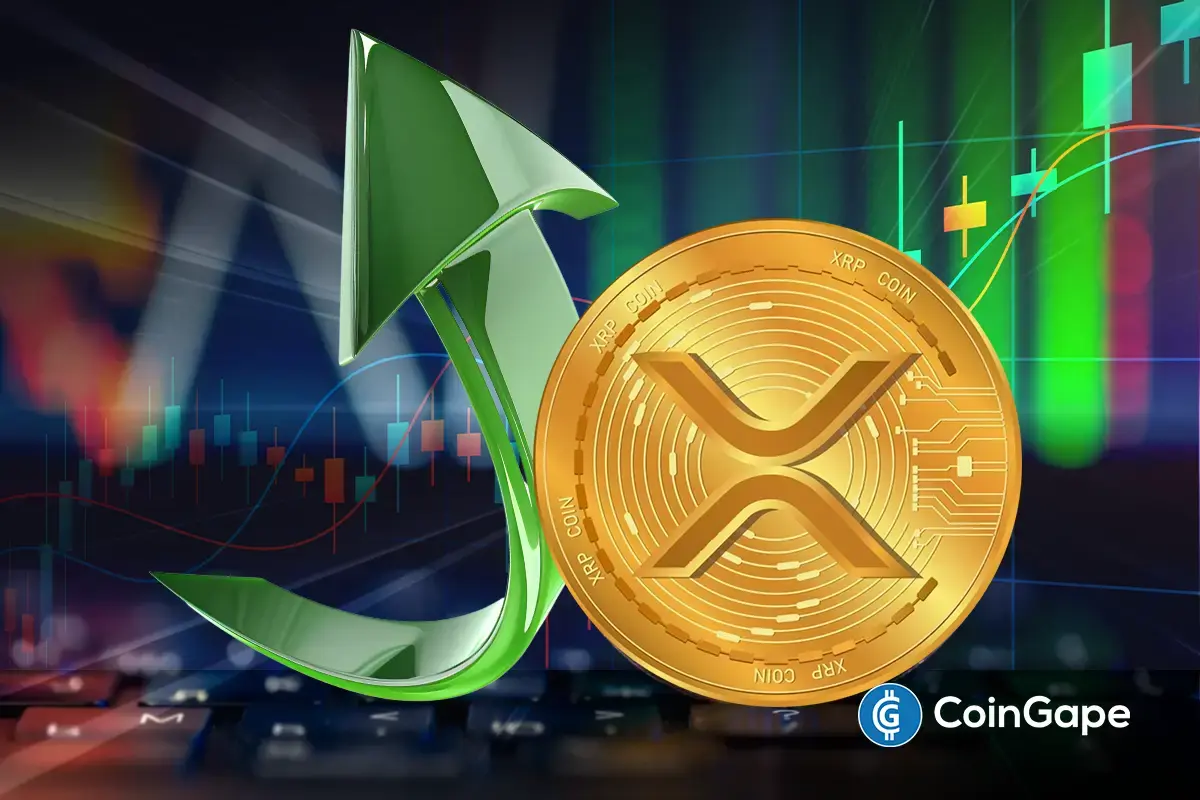
 Altcoin18 hours ago
Altcoin18 hours agoHere’s Why This Analyst Believes XRP Price Could Surge 44x
-

 Regulation22 hours ago
Regulation22 hours agoKraken Obtains Restricted Dealer Registration in Canada
-

 Altcoin14 hours ago
Altcoin14 hours agoFirst Digital Trust Denies Justin Sun’s Allegations, Claims Full Solvency
-

 Altcoin17 hours ago
Altcoin17 hours agoHow Will Elon Musk Leaving DOGE Impact Dogecoin Price?
-

 Ethereum16 hours ago
Ethereum16 hours agoWhy A Massive Drop To $1,400 Could Rock The Underperformer
-
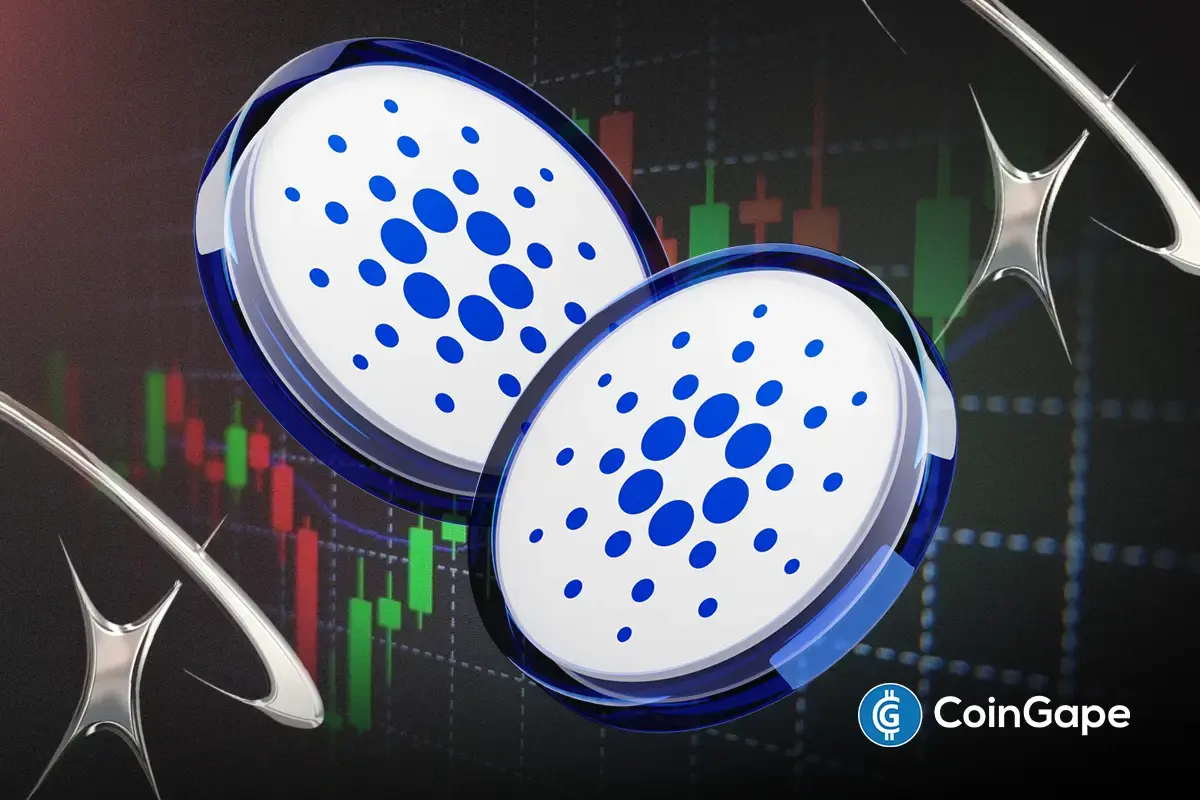
 Altcoin15 hours ago
Altcoin15 hours agoWill Cardano Price Bounce Back to $0.70 or Crash to $0.60?
-

 Market7 hours ago
Market7 hours agoXRP Price Under Pressure—New Lows Signal More Trouble Ahead


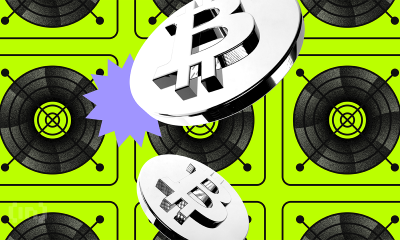







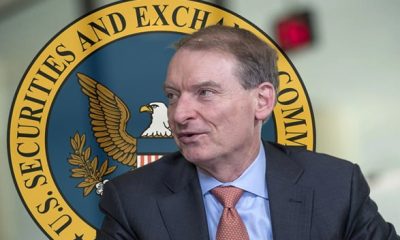



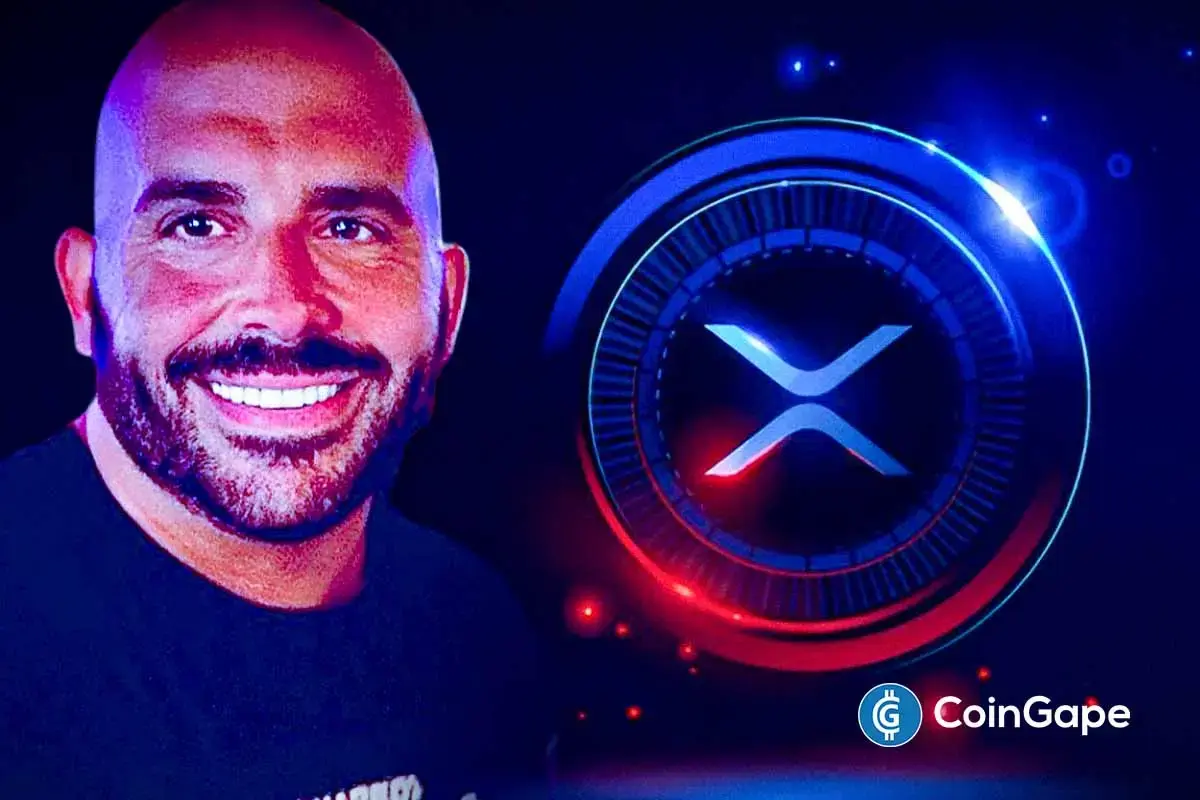










✓ Share: